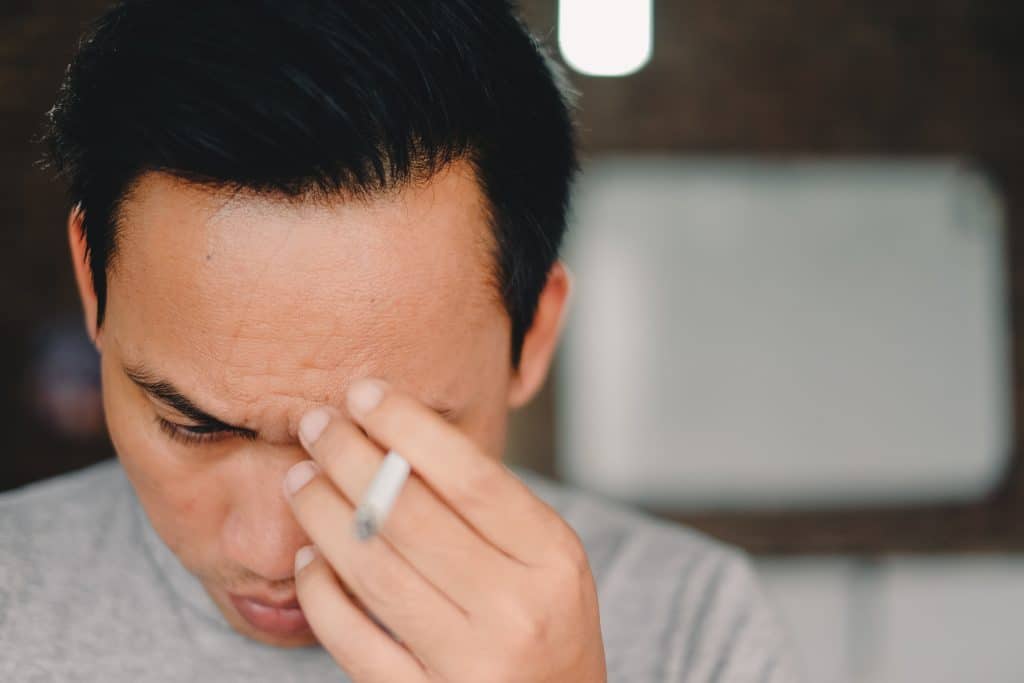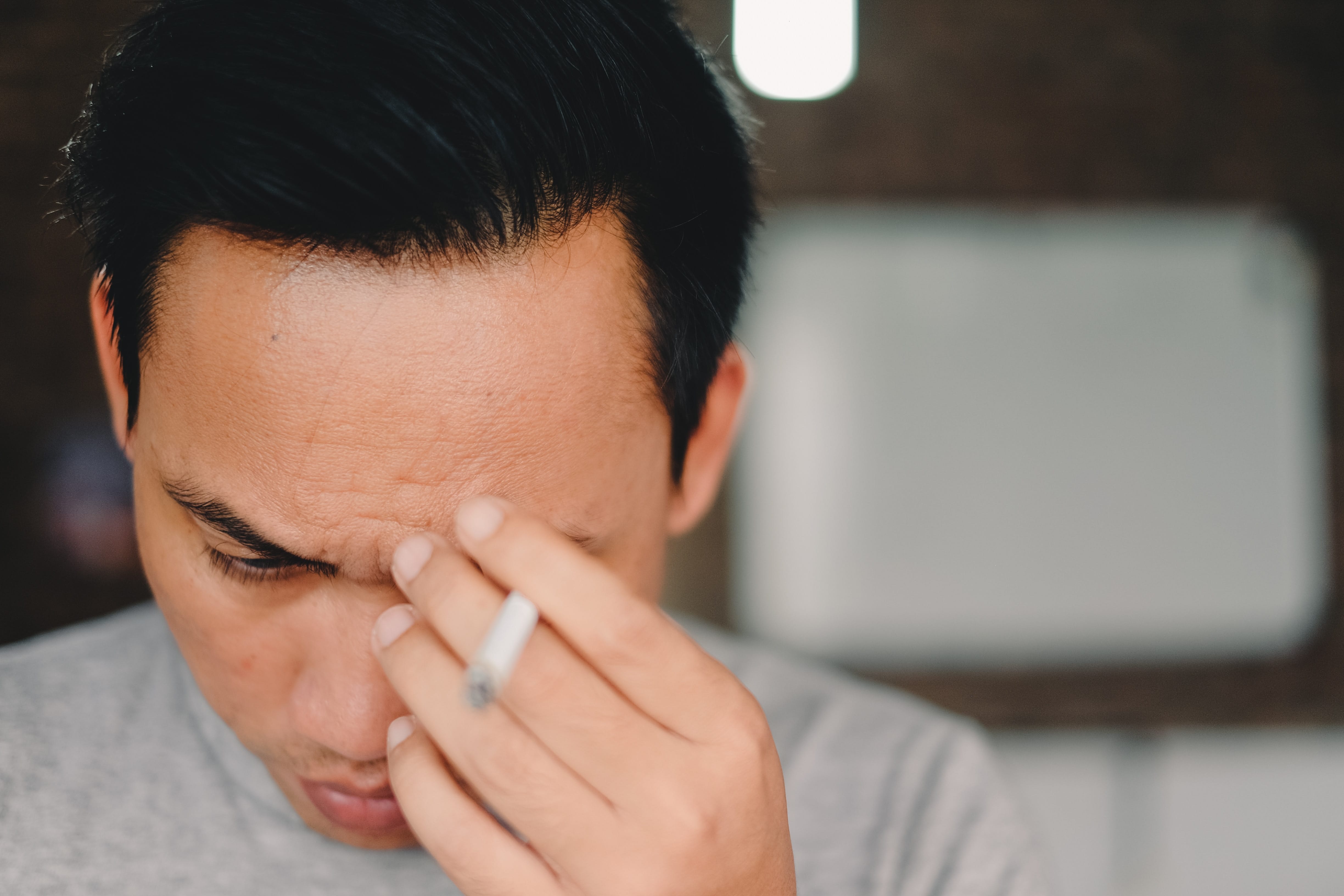
At one stage or another you have probably experienced a headache or worse a migraine, it is hard to stifle the memories of such a frustrating and intense pain invading your head space. Some of us suffer from sporadic one day headaches whereas on the other hand some individuals may feel as if their lives are being controlled by a chronic migraine expanding for more than 15 days every month.
In the United States alone it is estimated that every year one In seven people will suffer from a migraine, that’s adds up to a whopping 300 million individuals. For most re-occurring sufferers common symptoms include; sensitivity to sounds, smells, lights and vision and the potential addition of nausea or vomiting. The consumption of ‘food triggers’ such as alcohol, caffeine, smoked and processed meats, matured cheeses, cocoa-based products and artificial sweeteners are likely to increase the risk of a headache, which can develop from 1 hour to 12 hours post ingestion.
Before we touch on remedies, it is important to understand what causes the head to ache. The list of causative factors is extensive and is not limited to heredity, stress, dehydration, poor sleeping patterns, muscle strain or dietary factors.
- Become a conscious eater
Dietary is one of if not the most prominent trigger factors for headache and migraine sufferers. The current health trend epidemic has seen the growth in popularity in the notion of being ‘food conscious’ or to be a ‘conscious eater.’ For many of us, food is simply a means to an end. We may eat subconsciously when on the run, eat as a response to socialise queues or even sometimes because we are bored. In the long-term the risk of unhealthy eating habits is likely to be increase the likelihood of underlying disease and determinant to your psychical, emotional, spiritual and psychological wellbeing.
Over the last 50 years the world market has seen a rapid decline in the quality of foods being produced, contrasting the significant increase in the level of processing and addition of harmful additives and preservatives. Consequently, there has been a substantial increase in the number of people afflicted with ill-health and disease. Even worse, four out of the top ten diseases that kill humans are caused directly by what we put in our mouths.
Substituting your intake of fatty and sugary foods for a whole food diet is the first step on your journey to overcome disease and migraines. This makes a whole food diet one of the most cost-effective treatments for reducing or eliminating commonly reported food triggers.
- Quality Sleep Patterns
No this section is not dedicated solely to under sleeping, but studies show that oversleeping is also a common headache trigger. Allowing yourself the recommended 7-8 hours of sleep per night has multiple benefits in addition to reducing the likelihood of a headache such as reducing the risk of depression and anxiety and stabilising potential sleep-mood disturbances.
Taking time to prepare for sleep will significantly increase the likeliness of a deeper and more effective sleep. It is recommended that the following steps be taken; avoid caffeine, alcohol and nicotine four to six hours before sleep, establish a soothing pre-sleep routine such as reading or exercising before sleep.
If you are still experiencing difficulty getting to sleep, try placing Peace Lilly, Lavender or Aloe Vera in your bedroom to increase the oxygen content and purify the air, decrease stress and anxiety all while improving sleep.
- Active Lifestyle
Like sleep, the benefits of regular physical activity are extensive including its ability to reduce the frequency and intensity of headaches and migraines. Endorphins are the body’s natural pain killers which are released during exercise increasing blood circulation which includes maintaining a healthy brain function.
For some headache sufferers, exercise is a trigger for head pain however this is not a reason to avoid physical activity. Instead be sure that you are sufficiently hydrated prior to exercise, you should not be exercising when thirsty, have a dry mouth or if you do not sweat during medium to vigorous activities.
- Mental, Spiritual & Emotional Health
In additional to physical health, a holistic approach to headache prevention, takes into consideration the mental, emotional and spiritual health. Prolonged psycho-emotional stress can contribute to a reoccurring headache if healthy coping mechanisms are not put in place.
Headaches are a common symptom of a generalised anxiety disorder (GAD), therefore promoting positive mental health will assist with controlling headaches however there is no one-size-fits-all program when it comes to mental health.
Maintaining a holistic approach to health which incorporates healthy eating, sleeping, hydrating, breathing and exercising will in turn assist with the balance of an individual’s emotional health.
- Optimal Breathing Patterns
Our stressed-filled and fast-paced nature of the modern lifestyle can alter breathing patterns, resulting in weak or sluggish digestion, changes in posture, hormonal imbalances and emotional and psychological distress.
Some of the more popular approaches to breathing training to abate the symptoms of a headache include activities such as Tai Chi, Qigong, meditation, postural correction, gentle stretch, yoga and of course rest and relaxation. Through becoming familiar with your breathing patterns, you are able to shift your breathing patterns and relax when you move through your headache or migraine.
This positive impact is reaffirmed in a 2016 study, which revealed that mindfulness practice can promote effective heart rate regulation and thereby promote effective recovery after a stressful event for individuals with head conditions.
This does not mean, of course, that dietary and behavioural changes alone are all that is required to combat a chronic headache or migraine. Certainly other therapies such as homeopathy, healing touch (chiropractic care, physiotherapy, massage therapy), acupuncture, and herbology, are far more effective when based on a solid dietary foundation.
For more information on how to manage your migraine or headache through behavioural/diet approaches, read the full ebook by The Body Genius Institute which you can download for free here

